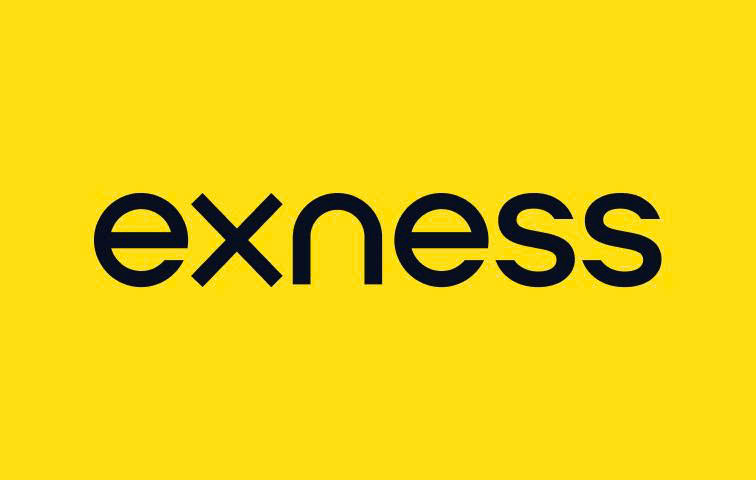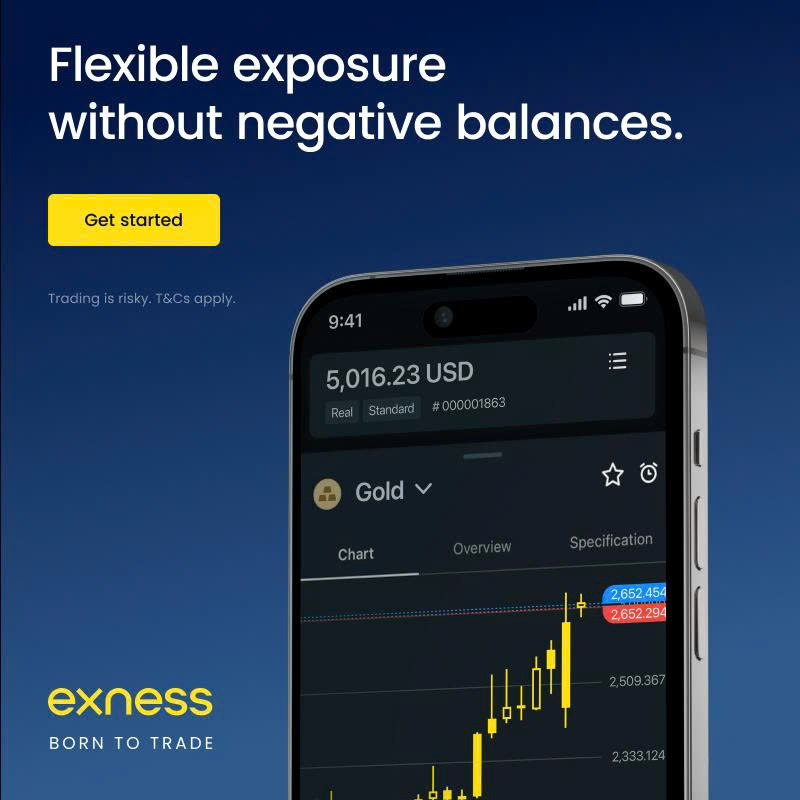
9 minute read
Is Exness Trading Legal in India? A Comprehensive Guide for 2025
from Exness
by Exness Blog
Forex trading has surged in popularity across India, driven by increasing internet access, financial literacy, and the allure of global financial markets. Among the many platforms available, Exness stands out as a leading international forex and CFD broker, known for its competitive spreads, high leverage, and user-friendly interface. However, a critical question persists for Indian traders: Is Exness trading legal in India? This article dives deep into the legal status of Exness in India, explores the regulatory framework, highlights key considerations for traders, and provides practical tips to ensure compliant and safe trading.

💥 Trade with Exness now: Open An Account or Visit Brokers 🏆
Understanding Exness: A Global Trading Powerhouse
Founded in 2008, Exness is a Cyprus-based brokerage that has grown into one of the largest forex and CFD brokers globally, serving over 700,000 active clients across 190+ countries. With a monthly trading volume exceeding $4 trillion, Exness offers a robust platform for trading forex, commodities, indices, stocks, and cryptocurrencies through Contracts for Difference (CFDs). Its key features include:
· Low Spreads: Starting at 0.0 pips on premium accounts, reducing trading costs.
· High Leverage: Up to 1:2000, enabling traders to amplify profits with smaller capital.
· Localized Payment Options: Supports UPI, bank cards, and e-wallets for seamless transactions in India.
· Advanced Platforms: Access to MetaTrader 4 (MT4), MetaTrader 5 (MT5), and the Exness Trade App.
· Multilingual Support: 24/7 customer service, including Hindi, for Indian traders.
Exness is regulated by multiple international authorities, such as the Financial Conduct Authority (FCA) in the UK, the Cyprus Securities and Exchange Commission (CySEC), and the Financial Services Authority (FSA) in Seychelles. These licenses ensure transparency, client fund segregation, and adherence to global financial standards. However, its lack of regulation by Indian authorities raises questions about its legality in India. Let’s explore the regulatory landscape to clarify this.
The Legal Framework for Forex Trading in India
Forex trading in India is governed by stringent regulations to protect investors and maintain economic stability. The primary regulatory bodies are:
· Reserve Bank of India (RBI): The RBI oversees foreign exchange transactions under the Foreign Exchange Management Act (FEMA), 1999. FEMA restricts forex trading to currency pairs involving the Indian Rupee (INR), such as USD/INR, EUR/INR, GBP/INR, and JPY/INR, and mandates that transactions occur through RBI-approved channels.
· Securities and Exchange Board of India (SEBI): SEBI regulates India’s financial markets, including currency derivatives traded on recognized exchanges like the National Stock Exchange (NSE) and Bombay Stock Exchange (BSE). SEBI ensures transparency and protects retail investors from fraud.
Under FEMA, Indian residents can only trade INR-based currency pairs through authorized platforms. Trading non-INR pairs (e.g., EUR/USD or GBP/USD) with international brokers like Exness falls into a regulatory grey area. Additionally, the RBI’s Alert List identifies unauthorized platforms, but Exness does not appear on this list as of 2025, suggesting it is not explicitly banned. However, traders must comply with FEMA guidelines to ensure legality.
Is Exness Legal in India?
The short answer is yes, Exness is legal in India—but only when used in compliance with Indian regulations. Here’s a detailed breakdown:
1. Exness’s Regulatory Status
Exness is not regulated by SEBI or the RBI, which has led to confusion among Indian traders. Instead, it operates under international licenses from reputable regulators like the FCA, CySEC, and FSA. These licenses enforce strict standards, including:
· Segregated Client Funds: Client money is kept separate from company funds to ensure security.
· Negative Balance Protection: Traders cannot lose more than their account balance.
· Regular Audits: Conducted by firms like Deloitte to ensure transparency.
· Compensation Schemes: Up to €20,000 per client in case of disputes, via the Financial Commission.
While these measures provide a level of safety, they do not substitute for local regulation. Indian traders using Exness must ensure their activities align with FEMA and RBI guidelines.
2. Compliance with FEMA
To trade legally on Exness in India, traders must:
· Trade INR-Based Pairs Only: Stick to currency pairs like USD/INR or EUR/INR. Trading non-INR pairs (e.g., EUR/USD) violates FEMA and could lead to legal repercussions.
· Use Approved Payment Methods: Deposits and withdrawals must be made through RBI-regulated channels, such as UPI, Netbanking, or bank cards. Cryptocurrencies or unregulated e-wallets may raise compliance issues.
· Repatriate Profits: All earnings must be brought back to India through legal banking channels and reported for taxation.
Exness supports INR-based pairs and offers compliant payment methods, making it possible for Indian traders to use the platform legally.
3. No Explicit Ban
Exness is not listed on the RBI’s Alert List, which includes unauthorized platforms like OctaFX and Alpari. This indicates that Exness is not banned in India. However, its lack of SEBI regulation means traders bear the responsibility of ensuring compliance with local laws.
4. Risks of Non-Compliance
Trading non-INR pairs or using unauthorized payment methods could violate FEMA, potentially leading to penalties or legal action. Additionally, since Exness is not SEBI-regulated, Indian traders may have limited recourse in disputes, relying instead on international regulators or the Financial Commission.
In summary, Exness is legal for Indian traders who adhere to FEMA’s restrictions on INR-based pairs and approved payment methods. However, the platform operates in a grey area due to its lack of local regulation, requiring traders to exercise caution.
Why Indian Traders Choose Exness
Despite the regulatory complexities, Exness remains a popular choice among Indian traders. Here are the key reasons:
1. User-Friendly Platforms
Exness offers intuitive platforms like MT4, MT5, and the Exness Go app, designed for both beginners and professionals. Features include real-time charting, technical indicators, and automated trading options, making it easy to navigate the forex market.
2. Competitive Trading Conditions
With spreads starting at 0.0 pips and leverage up to 1:2000, Exness allows traders to maximize returns with minimal capital. However, high leverage also increases risk, so traders should use it cautiously.
3. Localized Features
Exness caters to Indian traders with:
· INR Payment Options: Support for UPI, Netbanking, and bank cards ensures seamless transactions.
· Hindi Support: 24/7 customer service in Hindi enhances accessibility.
· INR-Based Pairs: Compliance with FEMA is possible by trading USD/INR, EUR/INR, etc.
4. Transparency and Reliability
Exness’s commitment to transparency, evidenced by real-time trading volume data and audited financials, builds trust among traders. Its 4-star Trustpilot rating and global reputation further enhance its appeal.

💥 Trade with Exness now: Open An Account or Visit Brokers 🏆
Risks and Challenges of Trading with Exness in India
While Exness offers numerous benefits, there are risks to consider:
· Legal Uncertainty: Trading non-INR pairs or using unregulated payment methods could violate FEMA, exposing traders to legal risks.
· Limited Local Recourse: Disputes with Exness must be resolved through international regulators, as SEBI’s grievance mechanisms do not apply.
· Market Volatility: Forex trading is inherently volatile, and high leverage can amplify losses, especially for inexperienced traders.
· Tax Compliance: Forex profits are taxable in India as “Income from Business or Profession” or “Capital Gains.” Traders must maintain detailed records and consult tax professionals to avoid penalties.
To mitigate these risks, traders should educate themselves on Indian regulations, use low leverage, and implement risk management strategies like stop-loss orders.
How to Trade Legally on Exness in India
To trade safely and legally on Exness, follow these steps:
1. Open an Exness Account
· Visit the Exness website or download the Exness Go app.
· Provide personal details (name, email, phone number) and verify your account with KYC documents (Aadhaar, PAN card, or passport).
· Complete proof of residence verification with a utility bill or bank statement.
2. Choose INR-Based Pairs
· Focus on currency pairs like USD/INR, EUR/INR, GBP/INR, or JPY/INR to comply with FEMA.
· Avoid trading non-INR pairs to stay within legal boundaries.
3. Use Approved Payment Methods
· Fund your account using UPI, Netbanking, or RBI-regulated bank cards.
· Withdraw profits through the same channels to ensure compliance.
4. Manage Taxes
· Declare forex earnings under capital gains or business income, depending on trading frequency.
· Maintain trade and broker statements for tax filing.
· Consult a tax advisor to ensure compliance with Indian tax laws.
5. Practice Risk Management
· Use low leverage to minimize losses.
· Set stop-loss orders to protect against market volatility.
· Start with a demo account to gain experience without risking real money.
Taxation of Forex Profits in India
Forex trading profits in India are subject to taxation under the Income Tax Act. Key points include:
· Capital Gains: If trading is occasional, profits are taxed as short-term or long-term capital gains, depending on the holding period.
· Business Income: Frequent trading may classify profits as business income, taxed at slab rates.
· Documentation: Maintain trade statements, broker statements, and bank records for tax filing.
· Penalties: Failure to report forex income can result in penalties or legal action.
Consulting a certified tax advisor is crucial to ensure accurate reporting and compliance.
Is Exness Safe for Indian Traders?
Exness is considered safe due to its global regulatory oversight, negative balance protection, and segregated client funds. Its encryption protocols and two-factor authentication (2FA) further enhance security. However, the lack of SEBI regulation means Indian traders must rely on international recourse mechanisms in case of disputes. To maximize safety:
· Verify the platform’s authenticity before depositing funds.
· Use secure payment methods like UPI or Netbanking.
· Regularly monitor account activity and enable 2FA.
Conclusion: Navigating Exness Trading in India
In 2025, Exness remains a viable and legal option for Indian traders, provided they adhere to FEMA and RBI guidelines. By trading INR-based currency pairs, using approved payment methods, and complying with tax obligations, Indian traders can leverage Exness’s robust platform without legal concerns. However, the lack of SEBI regulation and the risks of non-compliance highlight the importance of caution and education.
For Indian traders, Exness offers a gateway to global financial markets with competitive conditions and localized features. By understanding the regulatory landscape and implementing risk management strategies, traders can unlock the platform’s potential while staying within legal boundaries. Whether you’re a beginner or an experienced trader, Exness can be a powerful tool for financial growth—provided you trade responsibly and legally.
💥 Note: To enjoy the benefits of the partner code, such as trading fee rebates, you need to register with Exness through this link: Open An Account or Visit Brokers 🏆
Read more:

